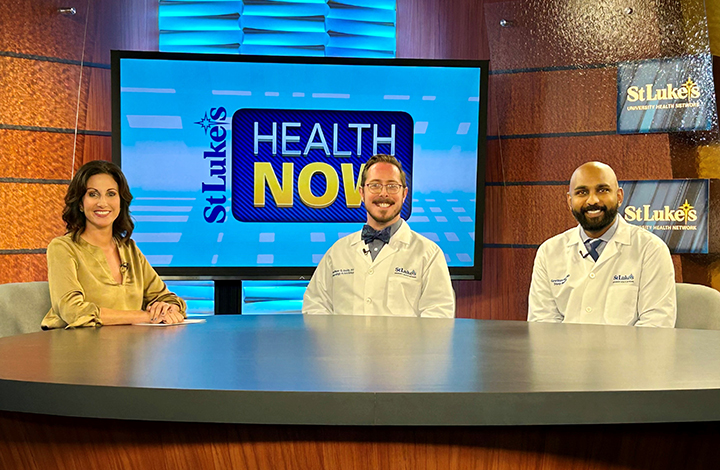News
Quitting smoking is one of the best things you can do for yourself and your family, says Dr. Jose Guzman of St. Luke’s Brodheadsville Family Practice. Smoking not only increases your risk of lung cancer, but it also can cause a host of diseases including throat cancer, mouth cancer, bladder cancer, chronic bronchitis, emphysema and heart disease, Dr. Guzman says.
Quitting isn’t easy, Dr. Guzman says. Studies show most people try at least five times before they are able to finally quit, he says.
When trying to quit, “I always tell people that you have to attack two aspects: the physical addiction to nicotine and the social aspect as lighting up a cigarette is a social behavior,” Dr. Guzman says.
It’s worth the effort, Dr. Guzman says. The health benefits of quitting are enormous. “The effects are immediate,” he says, “Within 24 hours of quitting, you start seeing regeneration of blood vessels in your hearts and lungs. As time goes by, days, weeks, months, the health benefits become greater and greater.”
Stop-smoking tips
No single approach to quitting works for everyone, Dr. Guzman says. You should talk to your doctor and your health insurance plan because your doctor may be able to prescribe medications that can help you quit and your insurance may provide coverage for you to enroll in a quit smoking program, he says.
Here are some tips from Dr. Guzman and Smokefree.gov that can make quitting more successful:
Make a plan. Look at the calendar and choose a “quit day” within the next two weeks. This will give you time to prepare and get the help such as nicotine replacement therapy if you need.
Stay busy. If you’re active it will help you keep your mind off of smoking. Some people find it helps to chew gum or hard candy, Dr. Guzman says.
Avoid your triggers. Think about when you have the desire to smoke and try and avoid those situations. You may need to change your routine, so you’re not reminded of the things you associate with smoking. “A lot of people who have been smoking for many years get stressed and go back and pick up that cigarette again,” Dr. Guzman says. If you can, avoid the situations that stress you out.
Ask for help. Tell family and friends that you’re quitting. Tell them, too, how they can help. “If you have a spouse that smokes, if they quit along with you that will help,” Dr. Guzman says.
Once you’ve quit smoking, you’ll feel better and want to live healthier. Here’s what else you should do, Dr. Guzman says:
Eat healthy. Make fruits and vegetables, whole grains and lean proteins the mainstays of your diet. Avoid processed foods and sugary beverages. Limit fried and salty foods, too.
Reduce stress. Managing stress will improve your immune system and lift your mood.
Get good quality sleep. Like smoking, poor sleep can increase your risk for a host of health conditions including heart disease, kidney disease, high blood pressure, diabetes and stroke. Your body needs time to rest and recover, Dr. Guzman says.
Get regular exercise. Exercise helps you maintain a healthy weight and strengthens your heart and lungs, Dr. Guzman says.



